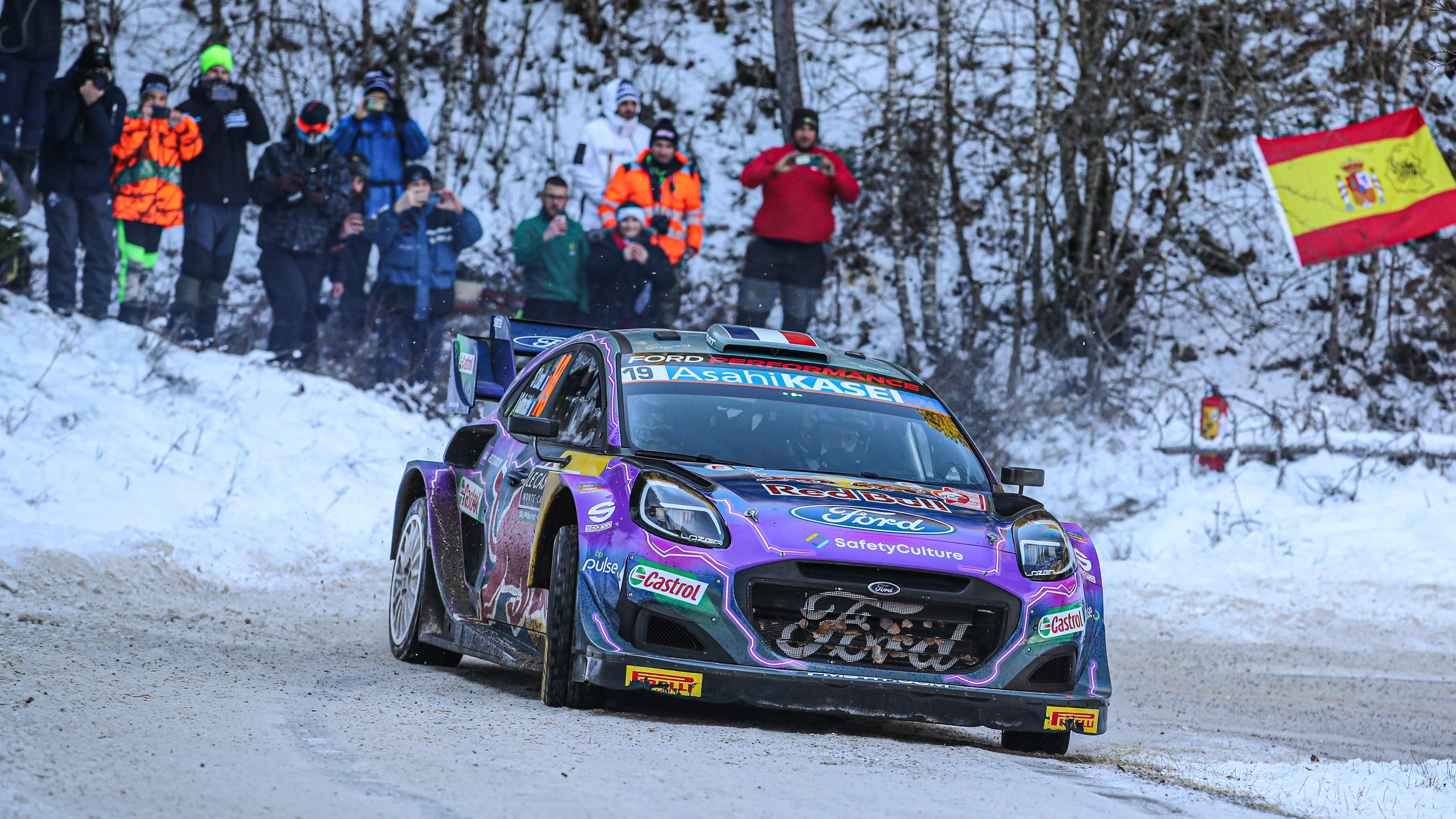Sébastien Loeb Wins Rallye Monte Carlo, His 80th WRC Win
Sébastien Ogier lost the lead on the penultimate stage after suffering tire puncture
It would be more challenging to write a better story than what took place over the past four days in southeastern France. The 90th Rallye Monte Carlo, the opening round of the 50th FIA World Rally Championship season, featured two of rallying all-time greatest drivers in an epic duel that wasn't decided until the final stage. When the smoke cleared, a 47-year old Sébastien Loeb took his 80th WRC rally victory. Loeb's co-driver Isabelle Galmiche won her first WRC rally victory at 50 years old and the first win for a woman in 25 years.
The landmark status of this Monte edition was further amplified as this event was also the debut of the WRC's first hybrid powertrain ruleset. While the cars are heavier on paper, they are visibly faster out on stages. Each vehicle now carries a 130-horsepower electric motor. The combustion engine and electric motor's combined output is over 500 horsepower, creating truly awe-inspiring moments of acceleration on the rally's narrow mountain roads.
M-Sport Ford's Sébastien Loeb and Toyota's Sébastien Ogier pulled a large enough gap to the rest of the field that each multi-time world champion only had to worry about the other in the standings. Attrition also took out any competitor that could have threatened the leading duo. At M-Sport, Adrien Fourmaux had his massive crash on Friday. The same day, Gus Greensmith got his first-ever stage victory as his teammate Loeb won four of the day's six stages. Saturday, Greensmith suffered a misfiring cylinder and a puncture on the same stage.
All three Hyundai entries struggled to find pace with leaders and crashed on Saturday. Thierry Neuville had to limp his Hyundai back to base with a disconnected front-right shock. Oliver Solberg crashed after a lapse in concentration. However, Solberg had to take a medical retirement later on because the lapse in concentration was actually exhaust fumes seeping into the cockpit. Ott Tänak saved his car from plunging off a cliff and slid right into a rockface.
On the same Saturday stage, the momentum swung in Ogier's favor. Both Ogier and Loeb opted not to take the snow or studded tire compounds as the rally headed up in altitude to snow and ice-covered roads. The gamble was hedged on making up time on the stage's clear pavement. Loeb struggled to fully utilize the super-soft compound while Ogier thrived.
Ogier headed into the final day with a 21.1-second lead over Loeb. Loeb was able to keep pace with Ogier on the first two of Sunday's four stages, but it seemed like he needed to find more speed to have a chance at retaking the lead. Loeb didn't have to find more speed as Ogier suffered a front-left tire puncture on the penultimate stage and had to nurse his car to the finish.
Sébastien Loeb started the final stage with a 9.5-second lead. Succumbing to the pressure, Ogier jumped the start of the final stage and was given a ten-second time penalty. The penalty cemented the victory for Loeb, who would have beaten Ogier by half a second over the stage regardless. M-Sport's Craig Breen was the leading full-time driver in third, almost 1 minute and 40 seconds behind his teammate Loeb. Over the four-day course of the event, this was honestly one of the most entertaining and dramatic rallies I have ever watched. It is a shame that we won't be seeing the two Sébastiens fighting each other over the entire season.
